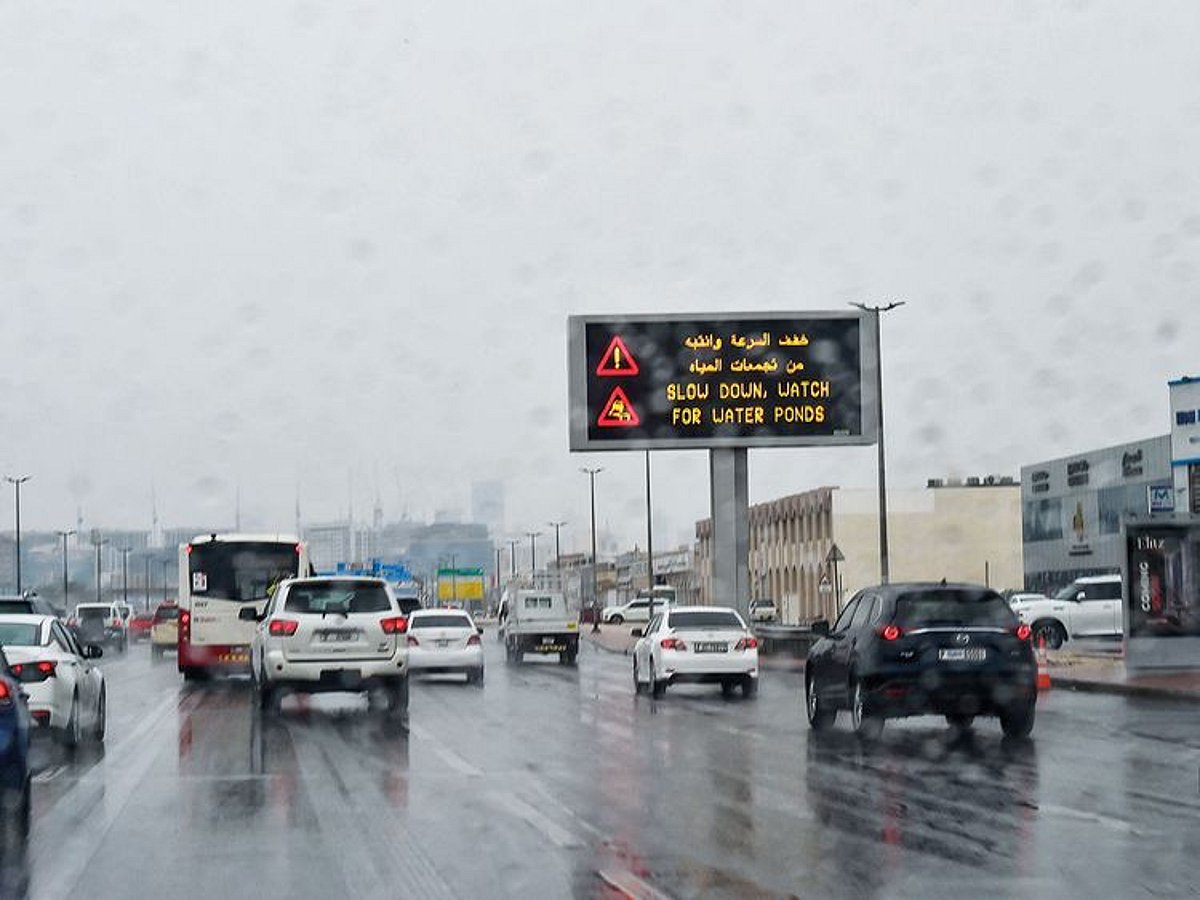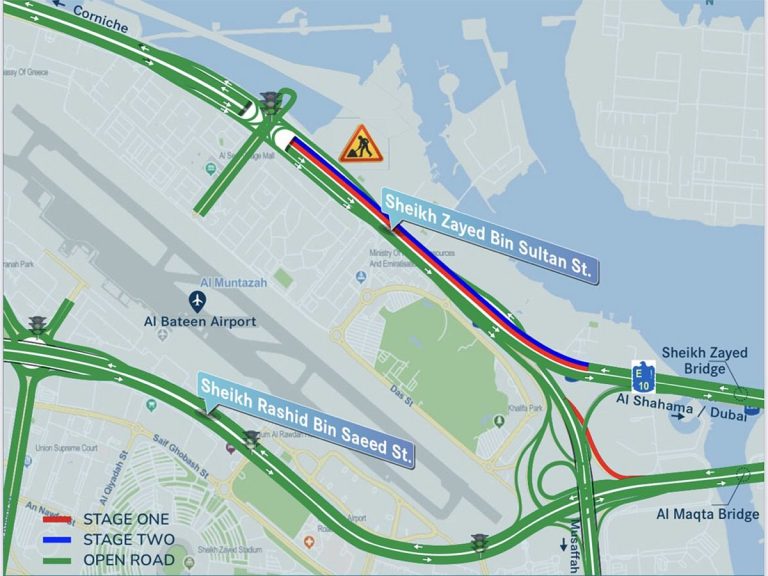Driving Safely in UAE Rain: Risks and Fines Explained
As the UAE experiences heavy rainfall, drivers must be aware of the increased risks and potential fines associated with poor driving habits in wet conditions. The National Center of Meteorology has indicated that this unstable weather pattern may persist, prompting authorities to issue traffic alerts. Understanding the regulations and fines can help ensure safety on the roads.
Key Rain-Related Fines
Distracted Driving Penalties
Using a mobile phone while driving is a significant concern, especially during rainy weather. Drivers caught using their phones face an Dh800 fine and four black points on their license. This includes taking photos or videos while driving, which can lead to even harsher penalties if it involves accidents or victims, potentially resulting in jail time or fines ranging from Dh150,000 to Dh500,000.
Eating While Driving
Abu Dhabi Police have identified eating while driving as a dangerous distraction, similar to mobile phone use. The UAE Ministry of Interior updated regulations to enhance traffic safety, especially during emergencies like floods. Drivers should avoid eating while on the road to maintain full attention, as even a momentary distraction can lead to accidents.
Flood-Related Offenses
The Ministry of Interior has implemented strict fines for those who ignore safety warnings during heavy rain. For instance, entering flooded areas can result in a Dh1,000 fine and six black points. Authorities advise against visiting valleys and wadis during storms due to the rapid rise in water levels, which poses significant risks.
Obstructing Emergency Services
Obstructing traffic or emergency services during adverse weather conditions is a serious offense. Offenders may face a Dh1,000 fine and four black points, along with potential vehicle impoundment for 60 days. It is crucial to allow emergency vehicles to pass, especially during heavy rain when road conditions can deteriorate quickly.
Speeding in Poor Conditions
Adjusting speed according to weather conditions is vital. Police recommend reducing speed during rain, and failure to comply can lead to fines. For example, driving just 20 km/h over the speed limit can incur a Dh300 fine, while exceeding the limit by over 80 km/h can result in a Dh3,000 fine, 23 black points, and a 60-day vehicle impoundment.
Improper Use of Hazard Lights
Using hazard lights while driving in low visibility is unsafe and can lead to a Dh500 fine and four black points. Hazard lights should only be activated when a vehicle is stationary or experiencing a breakdown. In cases of extremely poor visibility, drivers are advised to pull over safely until conditions improve.
Failing to Indicate Lane Changes
In rainy conditions, failing to signal lane changes can be particularly hazardous. Drivers caught not indicating may face a Dh400 fine. Authorities frequently run awareness campaigns to encourage safe driving practices, especially during adverse weather.
FAQs
What should I do if I encounter flooded roads?
Avoid driving through flooded areas and seek alternative routes. If you must travel, stay informed through official channels and heed any warnings from authorities.
Are there specific fines for driving too fast in the rain?
Yes, exceeding the speed limit in rainy conditions can result in fines. For example, driving 20 km/h over the limit incurs a Dh300 fine, while going over 80 km/h can lead to a Dh3,000 fine and other penalties.
Can I use my phone for navigation while driving in the rain?
While using a phone for navigation is generally allowed, it is crucial to ensure that it does not distract you from driving. It is best to set up your navigation before starting your journey.
Conclusion
Driving in rainy conditions in the UAE requires heightened awareness and adherence to traffic regulations to ensure safety for all road users. Understanding the potential fines for various infractions can help drivers make informed choices. As weather conditions continue to change, staying updated and cautious is essential for safe travel.
The UAE’s unique geography, characterized by its desert landscape, can lead to sudden and intense rainfall, which many drivers may not be accustomed to. This can create hazardous conditions, including reduced visibility and slippery roads, making it essential for drivers to adjust their driving habits accordingly. Authorities emphasize the importance of being prepared for such weather events, including checking vehicle conditions and ensuring that tires and brakes are in good working order.
In addition to fines, the UAE government has invested in public awareness campaigns aimed at educating drivers about safe practices during adverse weather. These initiatives often include tips on maintaining safe distances, using headlights appropriately, and recognizing the signs of hydroplaning. By fostering a culture of safety, officials hope to reduce the number of accidents that occur during rainy periods.
Moreover, the enforcement of traffic regulations during inclement weather is part of a broader strategy to enhance road safety across the UAE. The Ministry of Interior collaborates with local police forces to monitor compliance and respond swiftly to violations. This coordinated approach aims to protect not only drivers but also pedestrians and other road users who may be at risk during heavy rain.
Also Read:
UAE Issues Weather Warnings Amid Unstable Conditions







